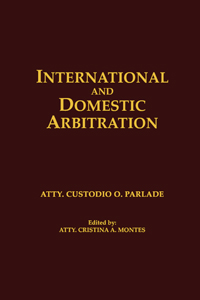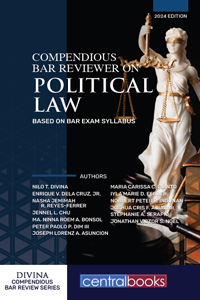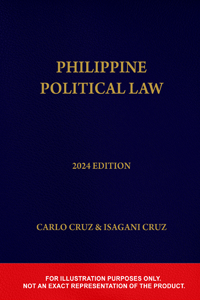- International and Domestic Arbitration (2022)
- Atty. Custodio O. Parlade
- Publisher: Central Book Supply, Inc.
- ISBN: 978-621-02-1865-7
- No. of Pages: 1039
- Size: 6 x 9
- Edition: 2022
Description:
Arbitration was practiced, albeit occasionally, between the city states of ancient Greece. It was, however, during the days of the Roman Empire that arbitration was used as a means of resolving private disputes. According to the Philippine Supreme Court, “the early judges called upon to solve private conflicts were primarily the arbiters, persons not specially trained but in whose morality, probity and good sense the parties in conflict reposed full trust. Thus, in Republican Rome, arbiter and judge (judex) were synonymous. The magistrate or praetor, after noting down the conflicting claims of litigants, and clarifying the issues, referred them for decision to a private person designated by the parties, by common agreement, or selected by them from an apposite listing (the album judicium) or else by having the arbiter chosen by lot. The judges proper, as specially trained state officials endowed with own power and jurisdiction, and taking cognizance of litigations from beginning to end, only appeared under the Empire, by the so‐called cognitio extra ordinem.”







